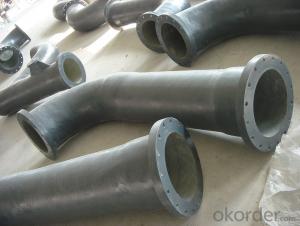Fiberglass composite pipes are a game-changer in the world of industrial piping. They offer a unique combination of strength, durability, and lightweight characteristics that make them an ideal choice for a wide range of applications. From chemical processing to water management, these pipes are revolutionizing the way we approach fluid transportation. Let’s dive into the world of fiberglass composite pipes and explore their benefits, applications, and what makes them stand out from traditional piping materials.
The Magic of Fiberglass Composite
Fiberglass composite is a material that has been gaining popularity due to its versatility and impressive strength-to-weight ratio. It’s made by combining glass fibers with a resin matrix, creating a material that is both strong and lightweight. This unique blend of properties makes it an excellent choice for pipe manufacturing, as it can withstand high pressures and temperatures while being easy to handle and install.
Why Choose Fiberglass Composite Pipes?
There are several reasons why fiberglass composite pipes are becoming the go-to option for many industries:
1. Strength and Durability: Fiberglass composite pipes can handle the rigors of industrial environments. They are resistant to corrosion, making them perfect for transporting corrosive chemicals or in areas with high salinity.
2. Lightweight: The lightweight nature of these pipes makes them easier to transport and install, reducing labor costs and time. This is particularly beneficial in remote or hard-to-reach locations.
3. Non-Conductive: Unlike metal pipes, fiberglass composite pipes do not conduct electricity, which is a significant advantage in electrically sensitive environments.
4. Thermal Insulation: They provide excellent thermal insulation, reducing heat loss and maintaining the temperature of the fluid being transported.
5. Customizability: The manufacturing process allows for a high degree of customization, enabling the pipes to be tailored to specific project requirements.
6. Cost-Effectiveness: Over time, the low maintenance and long service life of fiberglass composite pipes make them a cost-effective solution.
7. Environmental Friendliness: The material is non-toxic and can be recycled, making it an eco-friendly choice for those looking to reduce their environmental impact.
Applications of Fiberglass Composite Pipes
Fiberglass composite pipes are not just a one-trick pony; they are versatile and can be used in various applications:
– Chemical Processing: For transporting corrosive chemicals safely and efficiently.
– Water Management: Ideal for water treatment plants and irrigation systems due to their non-corrosive nature and resistance to biological growth.
– Oil and Gas: Used in pipelines for their strength and resistance to the harsh conditions often found in the oil and gas industry.
– Mining: The pipes can withstand the abrasive and chemically aggressive conditions common in mining operations.
– Marine: Resistant to saltwater and marine borers, making them perfect for use in marine applications.
– Agriculture: Lightweight and durable, these pipes are perfect for irrigation systems and transporting agricultural chemicals.
Installation and Maintenance
One of the perks of using fiberglass composite pipes is the ease of installation and maintenance. The lightweight nature of the material means that fewer workers are needed for installation, and the pipes can be joined using various methods, including flanges, couplings, and even welding. Maintenance is also a breeze, as the pipes are resistant to corrosion and do not require the same level of upkeep as traditional materials.
The Future of Fiberglass Composite Pipes
As industries continue to evolve and the need for sustainable and efficient solutions grows, the demand for fiberglass composite pipes is only expected to increase. With ongoing research and development, we can expect to see even more innovative applications and improvements in the manufacturing process, further enhancing their performance and benefits.
In Conclusion
Fiberglass composite pipes are a strong, lightweight, and versatile option for various industrial applications. Their unique blend of properties makes them an attractive choice for those looking to improve efficiency, reduce costs, and minimize environmental impact. As the world moves towards more sustainable practices, the role of fiberglass composite pipes in our infrastructure is set to become even more significant. So, the next time you’re considering a piping solution, remember the magic of fiberglass composite and how it can work for you.

